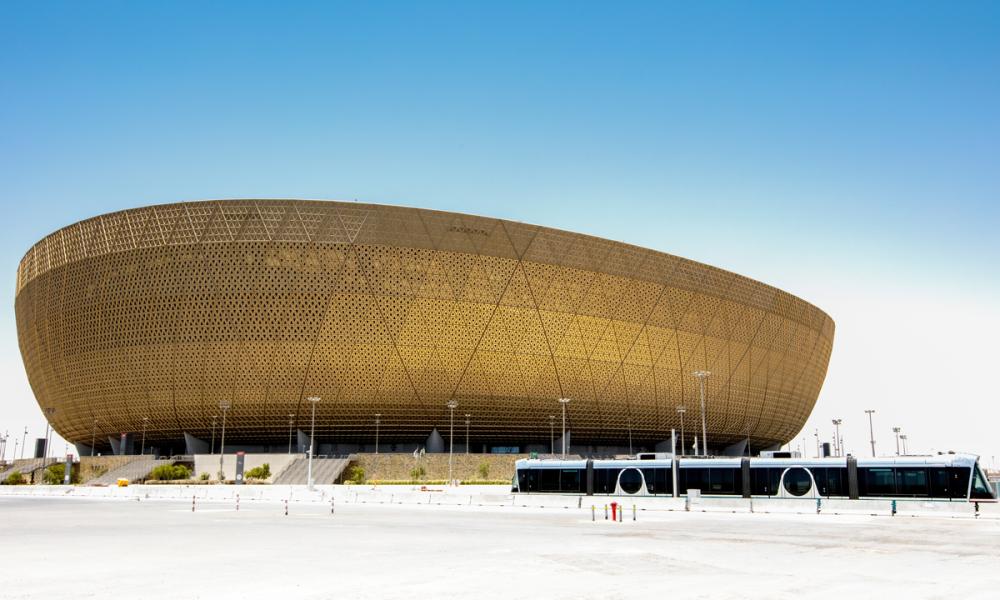Controversial and Crooked? The 2022 Qatar World Cup


We are days away from the 2022 Qatar World Cup kicking off. An event that is enjoyed and adored worldwide. I, like many, am super excited for the tournament to get underway but I can’t help but feel that this year, it is somewhat overshadowed by issues and concerns that should be spoken about and addressed.
A great controversy has long surrounded the 2022 World Cup, owing (not least) to allegations of bribery, questions on the welfare of migrant workers and the rights of women and LGBTQ+ communities. The 2022 Qatar World Cup has fast become the most controversial in football history – and that’s putting it mildly.
Since Qatar was first announced as the host nation back in 2010 (which, by the way, was a controversy in itself… more on this later), there has been a huge debate over the country’s credentials. Several players, football teams, commentators, sponsors, and other stakeholders linked to the tournament have taken a stance and openly condemned Qatari religious, social and legal norms.
For example, the Danish football team have announced that they will wear ‘toned down’ football shirts during their games in protest of the host nation, whilst several team captains will wear rainbow armbands in support of the LGBTQ+ community. Such actions, alongside a whole host of unwanted media attention worldwide, have recently led to the international football governing body FIFA urging teams to… ‘focus on the football'.
But, in my opinion, the issues that have been brought to light as a result of Qatar being granted the World Cup are bigger than that of football. It doesn’t sit right with me that the one and a half million or so football fans following their teams to Qatar should be forced to ‘accept their rules’, as recently advised by a Qatari ambassador, when their rules are so widely criticised.
For the avoidance of doubt, let me delve into some of those rules, and the other burning issues surrounding the World Cup, in brief.
LGBTQ+ rules
Homosexuality is illegal in Qatar because such acts are deemed to be immoral under Islamic Sharia law. Though, granted, organisers have proclaimed that ‘everyone is welcome’ and no one will be discriminated against, concerns have been raised for LGBTQ+ fans travelling to the event.
And who could be blamed for having those concerns? Only a few weeks ago, a Qatar World Cup ambassador and former Qatar international told German broadcaster ZDF that homosexuality was “damage in the mind”. What’s more, the BBC has recently reported that same-sex relationships can be punished in Qatar by fines, prison sentences of up to seven years - and even death by stoning.
Bribery and corruption allegations
Much like the handing of the World Cup to Russia in 2018, suspicion and rumours have long surrounded Qatar’s winning bid for the 2022 World Cup over the USA, by fourteen votes to eight. There were almost immediate corruption concerns over the decision.
This later led to The Sunday Times publishing the ‘FIFA files’… revealing how Qatari businessman Mohamed bin Hammam exploited his position within FIFA by making dozens of payments to football officials to sure up, his home nation, Qatar’s bid.
It begs the question, did Qatar buy hosting rights for the World Cup?
Migrant workers' rights
Given the country’s questionable human rights record, concerns were soon raised over the rights of, and conditions for, migrant workers on which Qatar’s booming construction industry relies heavily on. Many migrant workers hail from nearby countries, such as India, Pakistan, Nepal, Bangladesh, and Sri Lanka.
Over the past 10 years, Qatar has embarked on an unprecedented building programme, costing $300 billion according to Bloomberg, in preparation for the football tournament. Owing to a severe lack of facilities and infrastructure beforehand, the infrastructure projects included seven new stadiums as well as a new airport, metro system, series of roads and about one hundred new hotels. In fact, an entire city has been constructed around the stadium which will host the final match.
However, Qatar has come under intense scrutiny for the way it has treated and continues to treat, the tens of thousands of migrant workers who have built those stadiums where matches will be played and constructed the hotels in which fans will stay at.
The working conditions in the Qatari industry are appalling; poor pay and living conditions are not uncommon. Amnesty International found that withholding salaries and charging workers to change jobs were standard practices, despite so-called labour reforms. But that’s not all - migrant workers have been expected to work outside, in the extreme heat, for long periods of time during construction projects. Reports suggest shifts of up to 10 hours a day in fatal temperatures of up to 45°C. It’s no doubt that such dangerous conditions have played a role in the high death rate of workers.
I could go on – we haven’t even touched on the alcohol rules or slavery allegations - but, regardless, later this week Qatar vs. Ecuador will kick off the FIFA World Cup 2022. If nothing else, then Qatar being the host has allowed the eyes of the world to see what is going on in the Middle Eastern country and hold them accountable for their failures. We can only hope that football, as it has previously, will be a catalyst for change and improvement.
About the author
Rachael Woodroffe is a SOAS Digital Ambassador currently studying an online and distance learning MSc in Global Corporations and Policy. Rachael lives in the South West of England and works full-time in Corporate Affairs alongside her studies. Her interests include politics and current affairs. Outside of work she enjoys going to the gym and running, as well as watching sport; namely football.


